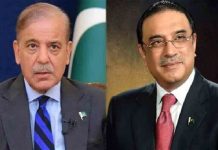DM Monitoring
BRUSSLES: NATO on Sunday called on Moscow to urgently renew the UN-brokered deal that enabled Ukraine to resume grain exports via the Black Sea amid a global food crisis.
“President Putin must stop weaponising food and end his illegal war on Ukraine,” NATO spokesperson Oana Lungescu said. “We call on Russia to reconsider its decision and renew the deal urgently, enabling food to reach those who need it most.”
All NATO allies had welcomed the agreement that came about with the help of Turkey, she noted. “These exports have helped reduce food prices the world over,” Lungescu added.
Earlier, the European Union had also called on Russia to reverse its decision to pull out of a UN-brokered grain deal.
Moscow suspended its participation in the Black Sea deal on Saturday, effectively cutting shipments from Ukraine, one of the world’s top grain exporters, in response to what it called a major Ukrainian drone attack earlier in the day on its fleet near the port of Sevastopol in Russian-annexed Crimea.
“Russia’s decision to suspend participation in the Black Sea deal puts at risk the main export route of much needed grain and fertilisers to address the global food crisis caused by its war against Ukraine,” EU foreign policy chief Josep Borrell said on Twitter.
“The EU urges Russia to (reverse) its decision.” On Saturday, US President Joe Biden called the move “purely outrageous”, saying it would increase starvation, while Secretary of State Antony Blinken accused Moscow of weaponising food.
On Sunday, Russia’s ambassador to Washington, snapped back, saying the US response was “outrageous” and made false assertions about Moscow’s move.
Russia’s departure from the grain deal marks a new development in a war that has recently been dominated by a Ukrainian counteroffensive and Russian drone and missile attacks that have destroyed more than 30% of Ukraine’s generating capacity and hit populated areas. Each side has accused the other of being prepared to detonate radioactive bombs.
President Vladimir Putin ordered Russia’s invasion of its smaller neighbour in an offensive he said was aimed at demilitarising and “denazifying” Ukraine.
Kyiv and the West say the war is an unprovoked act of aggression by Moscow.
The grain deal had restarted shipments from Ukraine, allowing sales on world markets, targeting the pre-war level of 5 million metric tonnes exported from Ukraine each month.
More than 9 million tonnes of corn, wheat, sunflower products, barley, rapeseed and soya have been exported under the deal, signed on July 22.
But ahead of its Nov. 19 expiry, Russia had repeatedly said that there were serious problems with it. Ukraine complained Moscow had blocked almost 200 ships from picking up grain cargoes.
When the agreement was signed, the U.N. World Food Programme said some 47 million people had moved into “acute hunger” as the war halted Ukrainian shipments.
The deal ensured safe passage in and out of Odesa and two other Ukrainian ports in what an official called a “de facto ceasefire” for the ships and facilities covered.
Russia told U.N. Secretary General Antonio Guterres in a letter that it was suspending the deal for an “indefinite term” because it could not “guarantee safety of civilian ships” travelling under the pact.
Moscow asked the U.N. Security Council to meet on Monday to discuss the attack, Deputy U.N. Ambassador Dmitry Polyanskiy wrote on Twitter. Five outbound and four inbound vessels safely passed through the humanitarian corridor, the U.N. coordinator for the deal said on Saturday.
“There are more than 10 vessels both outbound and inbound waiting to enter the corridor,” Amir Abdulla said in a statement, adding there was no agreement between the parties for the movement of vessels on Sunday.
Ukraine’s Foreign Minister Dmytro Kuleba, accusing Russia of using a “false pretext” to sink the deal, called on “all states to demand Russia to stop its hunger games and recommit to its obligations”. The European Union said “all parties must refrain from any unilateral action that would imperil” a deal it described as a critical humanitarian effort.




